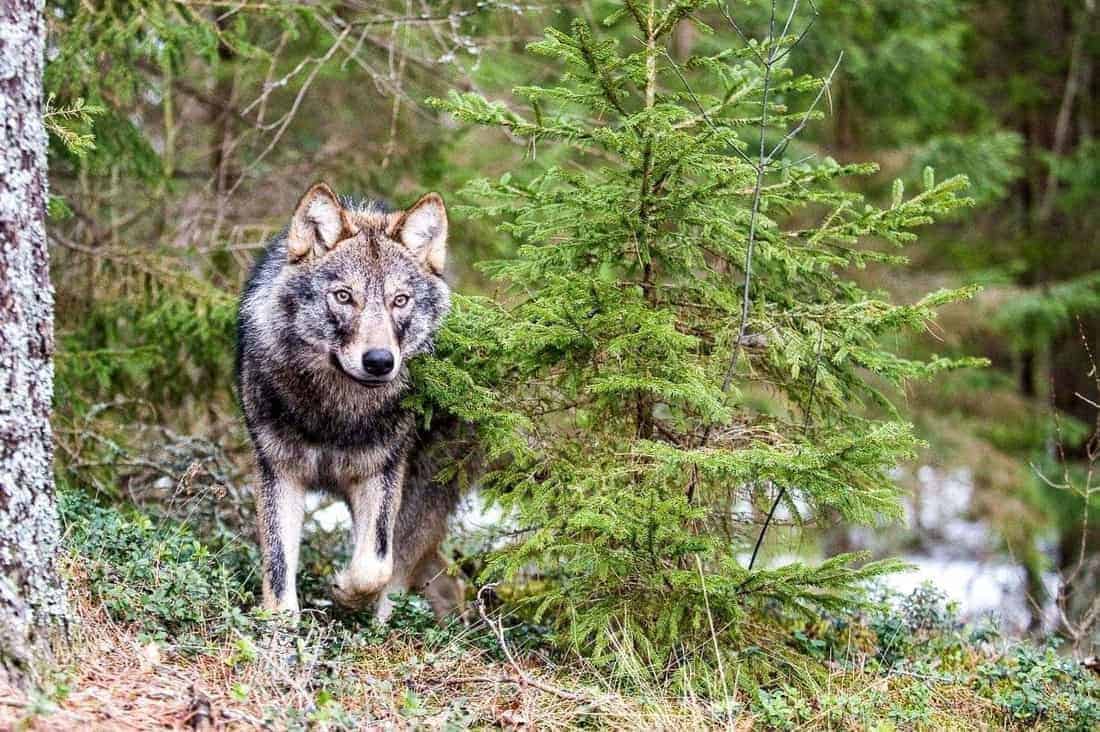How the wolf divides Norway
It is almost Christmas and New Year, and in Norway that means one thing for a specific group of hunters. The wolf-culling season is about to start. Each year, there is a big debate between and amongst environmentalists, politicians and hunters about the cull. Norway is one of the few countries in Europe where hunters can still legally kill wolves. On this controversial topic, the Guardian published its new documentary The Wolf Dividing Norway.
Why does Norway kill its wolves?
The rural communities in Norway struggle with the desertification syndrome. Many young people move towards cities, hoping they will find better jobs there. The young adults that stay behind are the so-called ‘stayers’. They are the working-class, often sharing a passion for traditional hunting. Their opinion on large carnivores is clear: a limited number of lynx, wolverines, and even bears are accepted. But they will never accept wolves.
Many locals see hunting as a form of traditional outdoor recreation. The reason for this is that during the 20th century, all large carnivores except the lynx were absent in Norway. Wildlife populations of ungulates, like deer and moose, flourished. To manage the growing numbers, many rural communities practised hunting as a form of income. This was either directly to serve food on the table, or indirectly to earn money for shooting the quotas. Now, Norways hold populations of lynx, wolverines, brown bears and wolves. The hunters feel their presence as direct threatening competition, while they actually help natural biodiversity.
The Wolf Dividing Norway goes to the heart of the wolf hunting debate, currently splitting political parties, families and communities.

Watch the new documentary from The Guardian now below, or via Youtube (30 min)








As the Norwegian Social Scientists Kletil Skogan has said: It is a HUMAN – HUMAN conflict and not a conflict between animals. Here also a posting in this topic from us. If we would protect our livestock as we did for the past thousand years and if we would address the social issues of the rural areas the wolf would not be an issue. We live and work as the European Wilderness Society in such a rural region with loss of jobs and suffering from urbanisation. Locals feel powerless to address these topics and are starting to blame the city dwellers for the demise of their beloved region. It is then often the city population which is in support of the return of nature and its wildlife. This really frustrates the rural population and the short sighted argument is often heard: first you steal our jobs, then lure our children into your cities and then demand that we share our home with wolves and bears! WHY?.. arguing then with biodiversity and climate change and ecosystem services is useless. We must develop a a new approach on how to support these areas without destroying existing traditions and customs, while modernising the rural infrastructure and encouraging new employment opportunities. One of the easiest things to do is move the government offices from the capital cities into the rural areas. Modern technology would create with home office and remote working new opportunities in these often forgotten areas. I am also sure that many city dwellers would love to combine an interesting job with a house in nature. Just one idea and I am sure there are many more that are worth exploring.
I agree with Max. It must be mentioned that the sheep in Norway are not in enclosed pastures, but are let roaming free in nature for an entire summer season with no protection or supervision. It is no wonder these animals are exposed to predation, to get hit by cars and weather conditions. The same is true for hunting dogs. Most of these dogs who become victim of a wolf attack are loose running (most inexperienced) dogs that the hunter has no control of and can be lost for several days. If they roam into wolf territory wolves will defend their territory. They don’t obey wolves boundaries or even attack wolves. In the end they won’t win the fight. In a nutshell it is people who don’t want to take the right measures, and those are feasible, to live with wolves.
Hi,
any fear must be taken serious, but so must also we take science serious. There are no cases recorded where wolves attacked children in the absence of rabies, which in Central Europe has been eradicated. The famous story of little red riding hood is just a fairy tale. Dogs which roam in a wolf territory without being on a leash are obviously seen as competitors by the wolves… and are attacked.. but not because they are domestic animals but simply because they are threatening the wolves who is defending itself. The number of unprotected livestock killed by wolves is less than 1% of their diet all across Europe. the total number of unprotected livestock killed in all of Europe is less than the number of livestock killed by diseases and car accidents in any one country. Livestock Protection is done for hundreds of years in most parts of Europe and successfully prevent livestock loses to wolves or bears or golden jackals.
The key to this issue is discussion between all parties based upon facts and not myths or emotions. The partisanship and radicalisation of the discussion on both sides is leading to this impasse which again leads to more emotions.
By the way, the Norwegian government just allowed the killing of 50% of the wolves including within the wolf protection zone. This again has infuriated the pro wolf lobby, which is going to court. Amazingly we need courts to settle this dispute instead of just talking to each other seriously and looking for common grounds and a long term strategy.
I find this comment utterly incomplete and skewed. Many of the farmers are also critically wolves because of all the sheep the wolves kill. Some in the rural areas are uncomfortable about having their children playing outdoors as well as the risk to their dogs. The hunters don’t necessarily see the wolves as competitors but as a threat towards their dogs as several hunting dogs are killed by wolves every year. Norway has established special zones for wolves where a certain number of wolves are allowed whilst wolves outside these zones can be hunted to, among other things, allow farmers to have sheep.